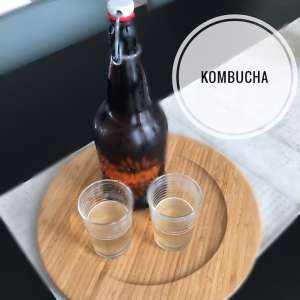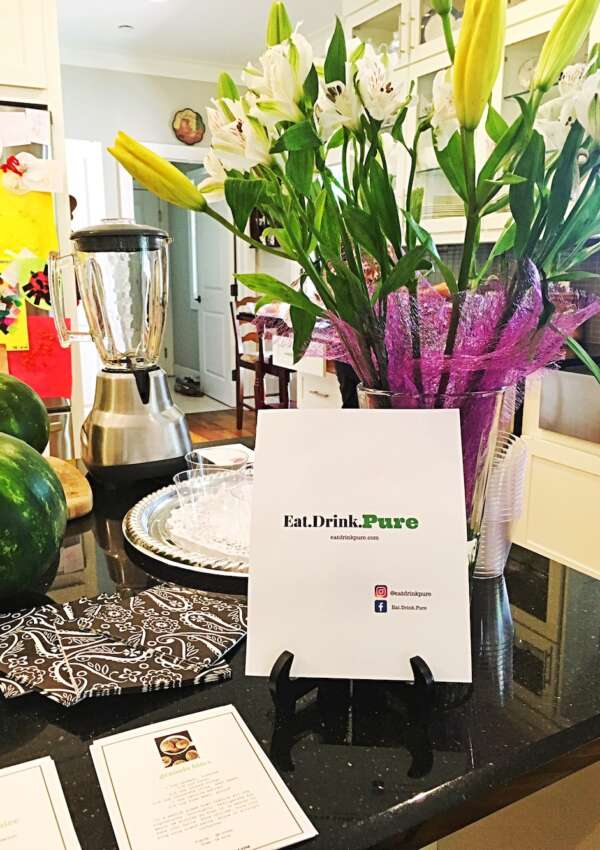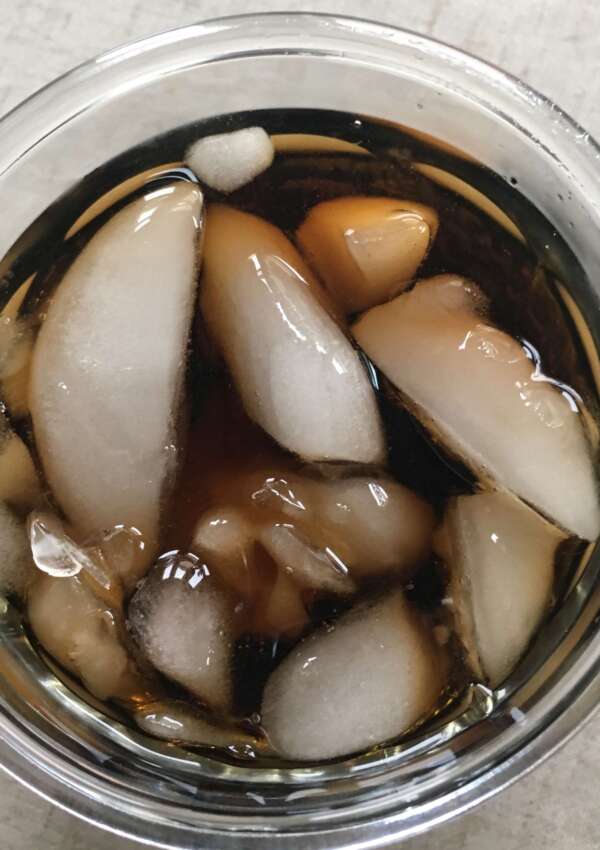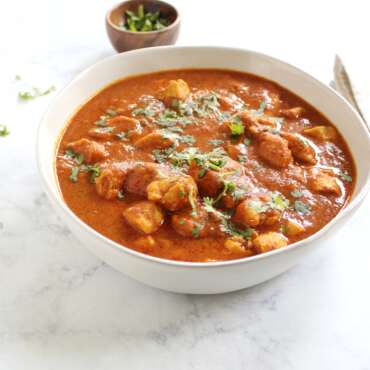Have you heard of Kombucha? It is only the latest health craze taking the world by storm!
Last Saturday, on one of our visits to the local farmer’s market, I came across the stall of a local business, The Kombucha Company. Having heard of this very popular elixir and keen to try it out, I ventured over with my boys in tow. They had many different flavors for people to sample and we wasted no time in trying them all out. There was peach, blue berry, yerba mate and original. The winner though, was cherry. I wasn’t surprised, that was my sons’ choice in almost everything. Medicine, candy etc.
I was actually hoping that my little one, who had just recovered from a bout of the flu, take to it since he had been on antibiotics and needed the healthy dose of probiotics that Kombucha has been said to provide. Much like kefir, sauerkraut, kimchi and yogurt, it is an excellent source of the microorganisms.

What is kombucha?
Kombucha is a fizzy, fermented tea touted as extremely healthy for one’s gut. It is high in:
- antioxidants,
- folic acid and
- B- vitamins.
How is kombucha made?
It is made by fermenting black or green tea, sugar and “symbiotic colony of bacteria and yeast” or SCOBY. The SCOBY is a large cellulose disk that is floated atop the tea and left to ferment for a week or so. The result is a beverage full of antioxidants, vitamins and probiotics. The sugar is mainly the food for the SCOBY and helps in the fermentation process so this is not sweet as one may imagine.
Where did kombucha originate from?
Kombucha may have become more main stream in recent years but the origin of the drink dates back to 220 BC China. It was in 414 AD that it was imported to Japan by the physician Kombu.
It has been present in Russia, Eastern Europe and even Germany but made it’s way to The United States in the 1990’s. Today, it has been predicted that the global market for Kombucha is expected to grow at a CAGR (Compound Annual Growth Rate) of 15% during the period 2017-2021.
So why is this beverage gaining so much popularity?
As I mentioned before, Kombucha contains probiotics, those “good for you” bacteria that encourage a healthy gut flora.
Probiotics:
- Keep you regular
- improve digestion
- boost immunity
- help with intestinal problems
- heal respiratory infections
- help with skin disorder.
New research from The University of Maryland School of Medicine indicates that the Lactobacillus rhamnosus GG (LGG) strain of bacteria, present in most popular probiotic products is responsible for healing and even goes as far as to suggest that it aids with weight loss.
With all this talk of fermentation one is likely to ask,
is kombucha halal?
The answer to that question is a resounding YES. Check out this link for further details.
You see, fermentation is a natural process that occurs even while baking bread and making vinegar. There is no added alcohol, rather trace amounts occur due to the process itself. The amount of alcohol is negligible (< than .5%) . To put this into perspective, an over ripe banana has about the same amount of alcohol.
Bottom line
Although there are many benefits of consuming Kombucha, as stated by die hard fans of the drink, namely; detoxification and giving a much needed energy boost, the jury is still out on it’s over all benefit to human health.
Hence due to it’s microbial sourcing Kombucha is not recommended for people with poor immune function, pregnant and nursing women and children under four.
Some say that four ounces a sitting is the perfect amount and better to drink it in smaller doses than to guzzle it down all at once. One should not exceed 16 ounces a day.
So what are your thoughts? Have you tried out this invigorating beverage? Tell me about your experience down below!








In America kombucha sold must be below 0.5%. Anything above that is categorized as a alcoholic drink. Home brewed Kombucha can go above 0.5% and thus make you feel tipsy.
That’s good to know, thanks Suzi!
everyone saying it is halaal… simply based on the fact that the alcohol process is natural and its not enough to intoxicate you.. but then in the same token that would mean that taking a sip of wine is halaal as well..? i dont see how wine is not permissable and kombutcha is because it naturall ferments? so does wine… regardless of intoxication or not if it is bad in big quantities it should be avoided in the tiniest of quantities as well… right?
I was researching about kombucha and if it’s halal just simply because i had a cup last evening and actually gotten slighly ‘high’ (the same effect as when ive drunk alcholic drinks) from it!
Hi ilena!
I am sure if kombucha was an intoxicant, it would not be sold unrestricted in stores and farmers markets. It is recommended however, to have no more than 16 oz a day. Hope this helps!